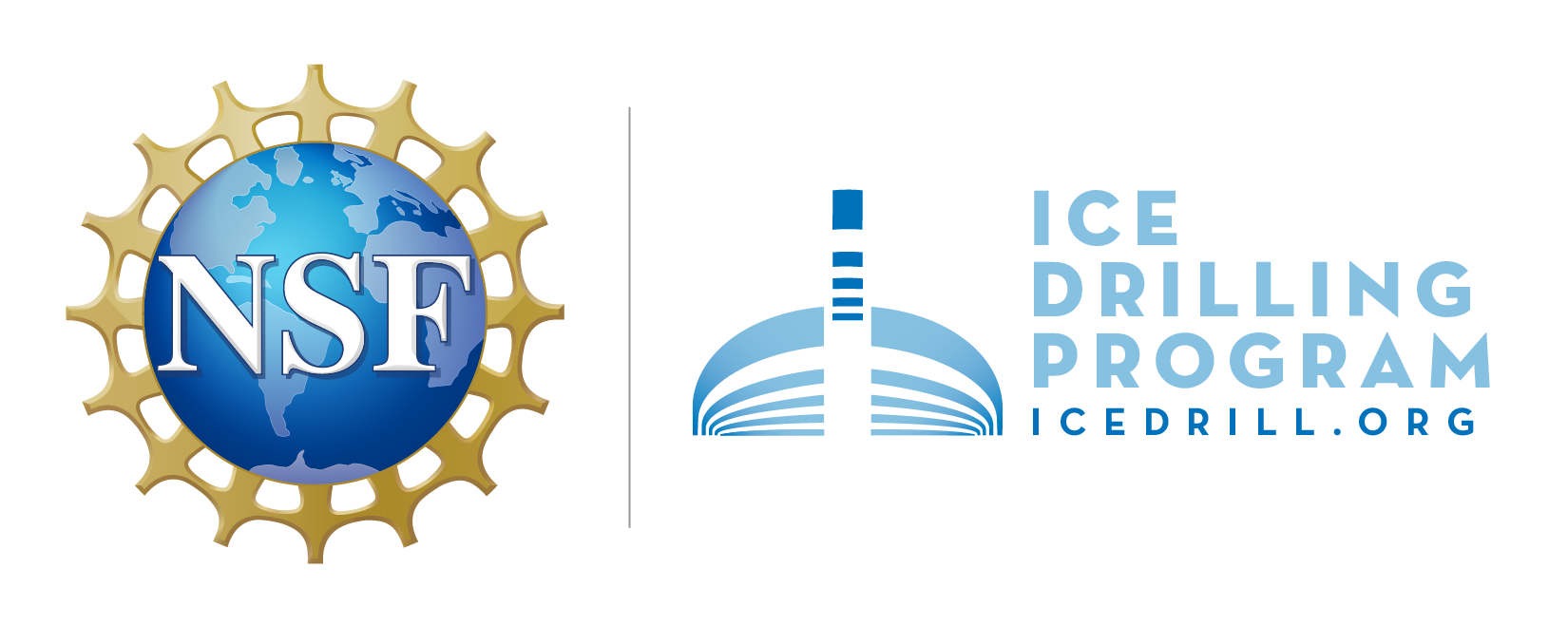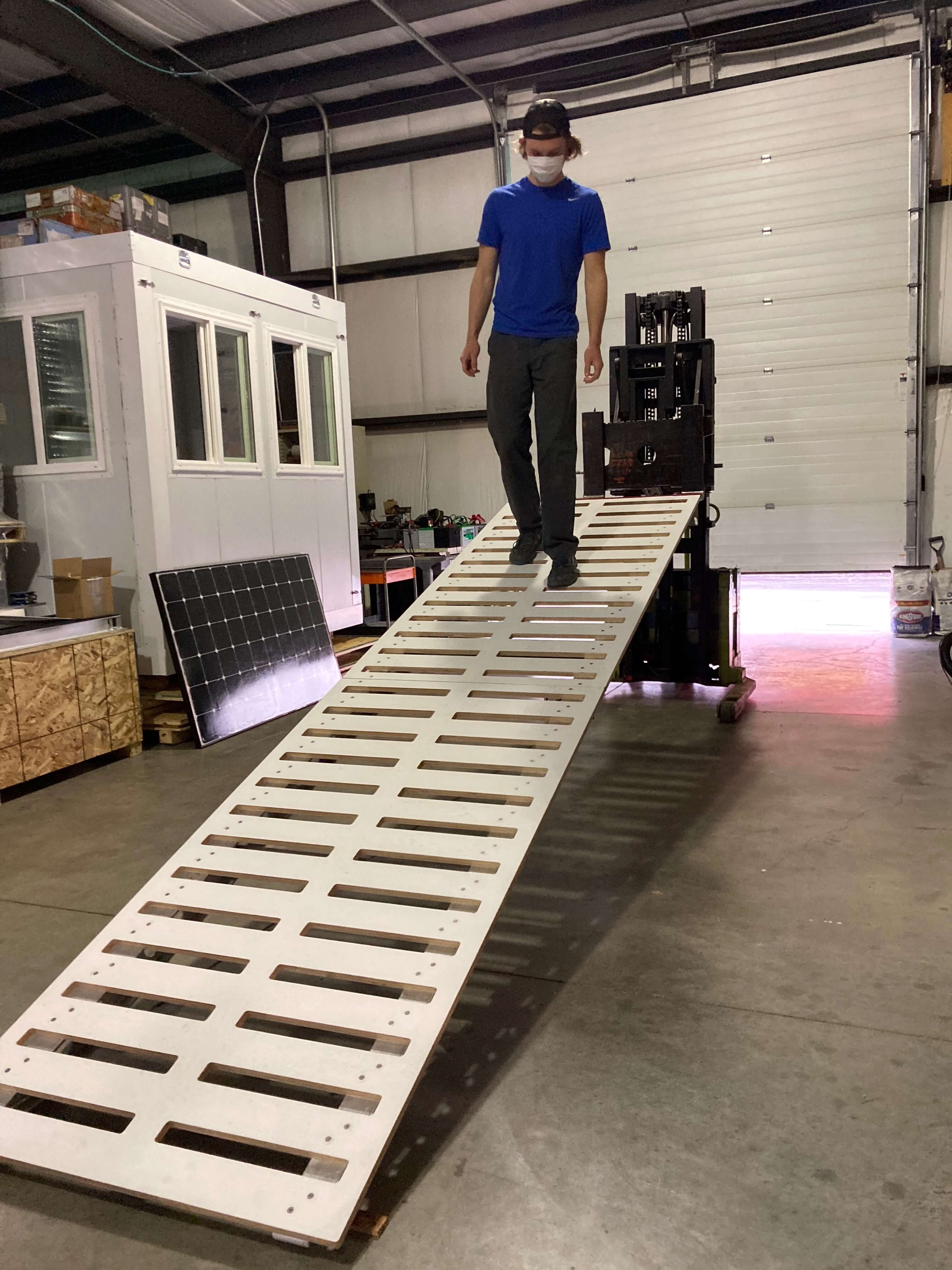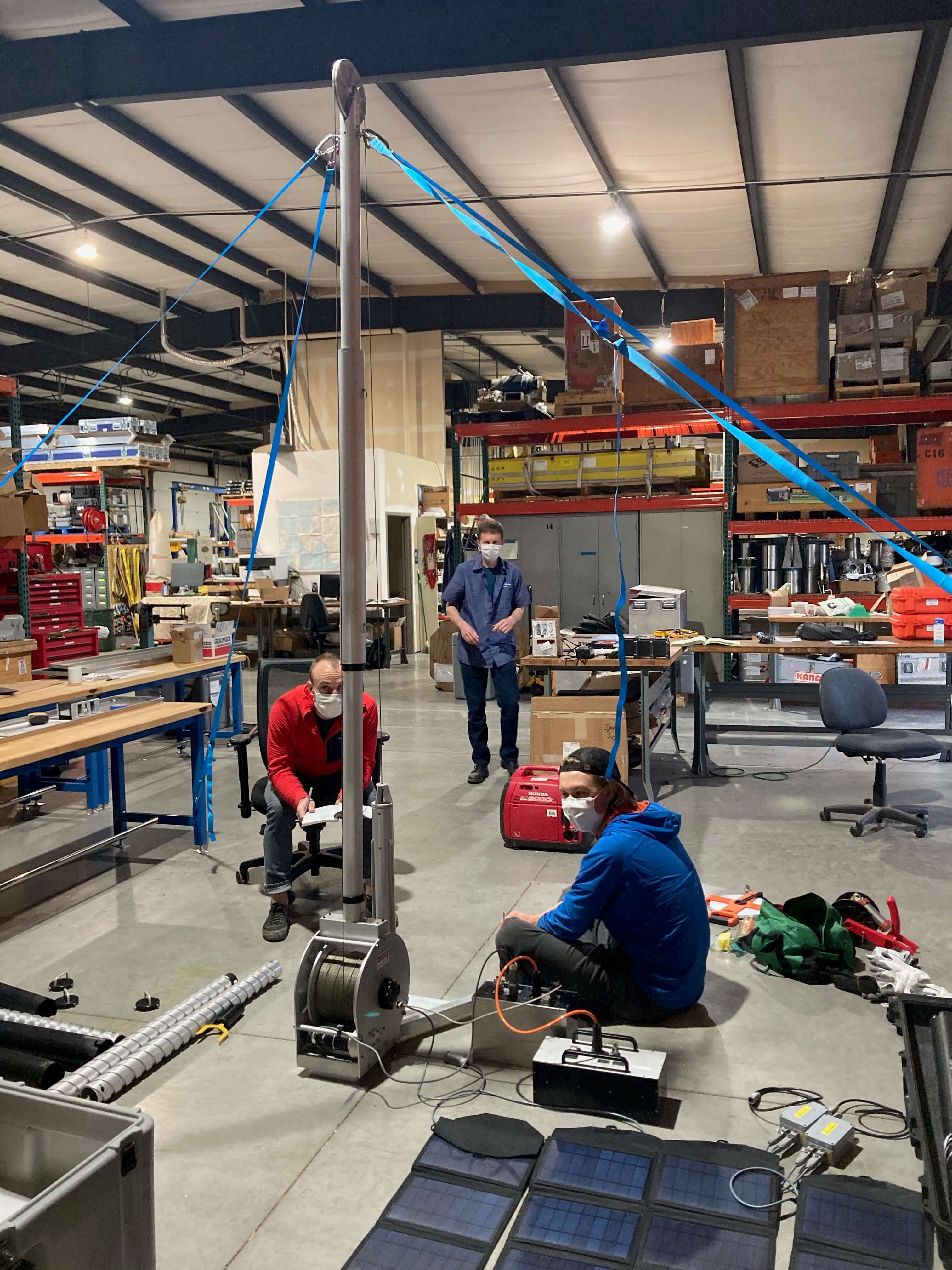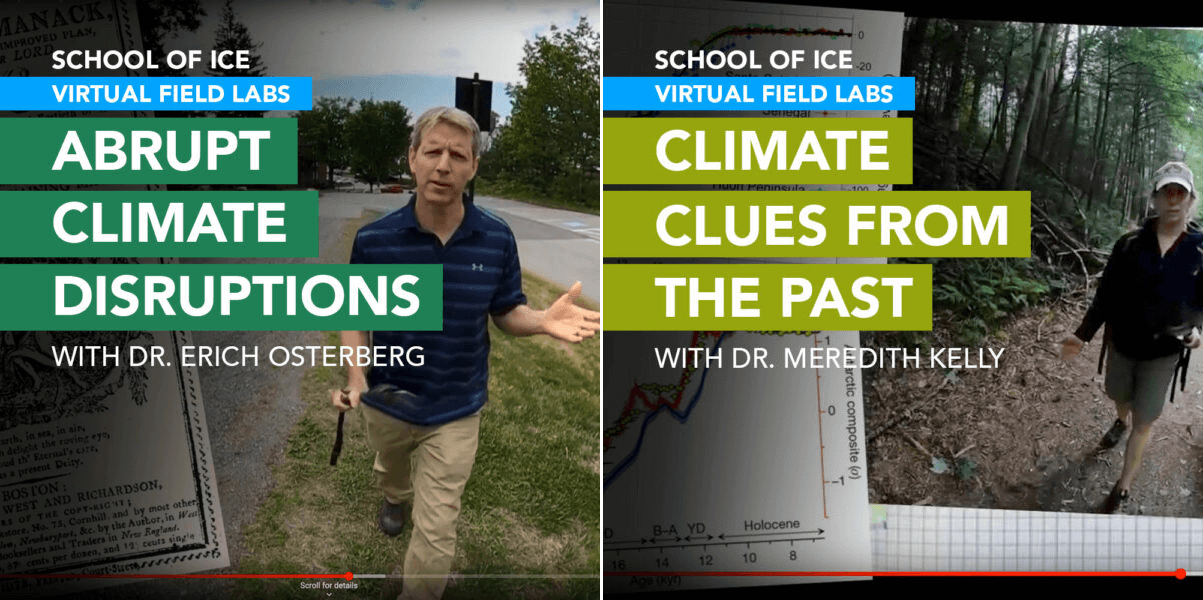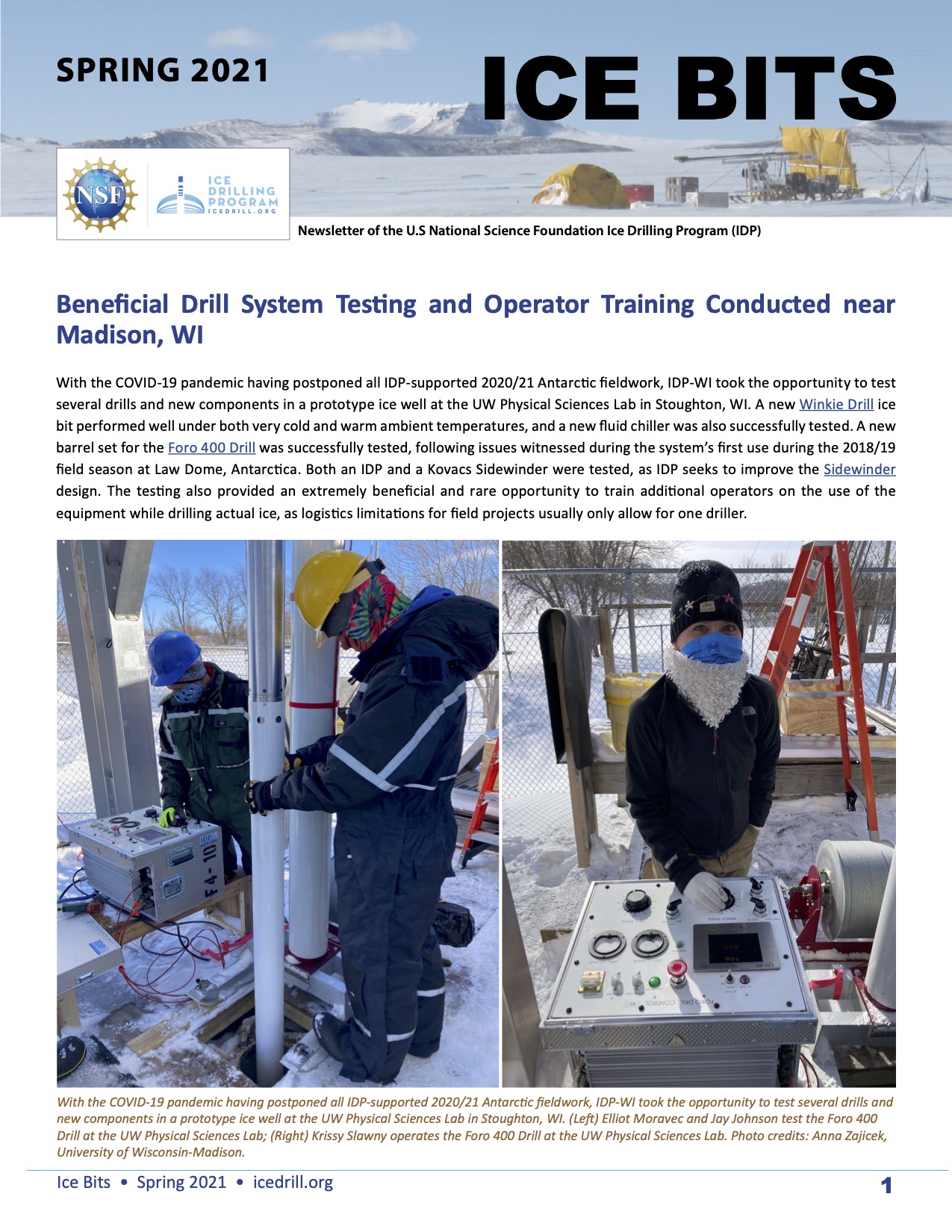Beneficial Drill System Testing and Operator Training Conducted near Madison, WI
- Foro 400 Drill
- Winkie Drill
- Hand Auger
With the COVID-19 pandemic having postponed all IDP-supported 2020/21 Antarctic fieldwork, IDP-WI took the opportunity to test several drills and new components in a prototype ice well at the UW Physical Sciences Lab in Stoughton, WI. A new Winkie Drill ice bit performed well under both very cold and warm ambient temperatures, and a new fluid chiller was also successfully tested. A new barrel set for the Foro 400 Drill was successfully tested, following issues witnessed during the system’s first use during the 2018/19 field season at Law Dome, Antarctica. Both an IDP and a Kovacs Sidewinder were tested, as IDP seeks to improve the Sidewinder design. The testing also provided an extremely beneficial and rare opportunity to train additional operators on the use of the equipment while drilling actual ice, as logistics limitations for field projects usually only allow for one driller.
Science Advisory Board 2021 Meeting
- Science Advisory Board
- Long Range Plans
The annual IDP Science Advisory Board (SAB) meeting was held March 18-19 via Zoom. The meeting included updates from NSF and IDP, as well as from the three SAB working groups: Ice Core Working Group, Subglacial Access Working Group, and Borehole Logging Working Group. SAB members also discussed draft updates for the IDP Long Range Science Plan and prioritization of drilling technology developments. The presentations made during the meeting are available on the IDP website at https://icedrill.org/library/presentations-2021-science-advisory-board-meeting.
Ice Core Working Group 2021 Meeting
- Science Advisory Board
- Long Range Plans
- Fieldwork
- Ice Core Working Group
The annual Ice Core Working Group (ICWG) meeting was held virtually on March 8 via Zoom. Discussions included updates from NSF and IDP, project updates from Canada, Greenland, and Antarctica, the current status and future plans for the NSF-Ice Core Facility, data archiving, updates to the Long Range Science Plan (LRSP), and ice drilling technology development for the LRSP. The presentations made during the meeting are available on the IDP website at https://icedrill.org/library/presentations-2021-ice-core-working-group-meeting.
Request for Community Input — DRAFT 2021 Long Range Science Plan
- Long Range Plans
- Fieldwork
- Science Advisory Board
Each year in the spring, the Ice Drilling Program (IDP) works with its Science Advisory Board (SAB) and the research community to update the Long Range Science Plan. This Plan identifies the science in the coming decade that will require the use of ice drilling technology and expertise for the community. This also drives the formation of other plans, for example, the Long Range Drilling Technology Plan. The plans provide the basis for multi‐annual planning for the actions and drill development projects of IDP and others, and the plans give the funding agencies advance notice of upcoming community science needs.
If you need an ice core or a hole drilled in a glacier or ice sheet in the coming decade or a rock core from under shallow glacial ice, please make sure that the high‐level articulation of your science is captured in the current draft update of the Long Range Science Plan!
Please read through the draft Long Range Science Plan and send corrections, updates, or additions to IceDrill@Dartmouth.edu ASAP or not later than June 12, 2021. When sending corrections/updates, please also reference the appropriate line number in the draft Long Range Science Plan where the correction/update is needed.
Submission deadline: June 12, 2021
To download the working draft, visit: https://icedrill.org/long-range-science-plan
IDP Education and Public Outreach Update Spring 2021
- Education/ Outreach
- Meetings/ Workshops
Planning for the School of Ice is well underway, and the workshop will take place at Oregon State University July 31-August 4, 2021, with participating faculty from across the country. Two new Virtual Field Lab resources will be introduced during the workshop.
The Virtual Field Labs (VFLs) were also presented to middle school and high school educators during the National Science Teaching Conference and college faculty at the CUNY Climate Change Education Resources Conference. The VFL’s are available on the IDP Education and Outreach website and are appropriate introductory teaching resources for a wide range of age levels (middle school to college), both in classrooms under a teacher’s direction and as independent work on a student’s laptop or tablet. The first two 3-part series featuring Dr. Erich Osterberg and Dr. Meredith Kelly are available now, and two new series of videos will be available in August.
U.S. Scientific Traverses on the Greenland Ice Sheet: a Planning Workshop
- Meetings/ Workshops
- Long Range Plans
- Fieldwork
June 11, 2021 via Zoom
Sponsors: U.S. Ice Drilling Program & Summit Science Coordination Office
Conveners: Joerg Schaefer, Mary Albert, Jason Briner, Zoe Courville
Website: https://icedrill.org/meetings/us-scientific-traverses-gris-planning-workshop
The U.S. Ice Drilling Program and the Summit Science Coordination Office are co-sponsoring a U.S. science community planning workshop to identify and articulate U.S. science community interests for long-term planning of potential scientific traverses on the Greenland Ice Sheet.
Purpose: The workshop is designed to identify the driving scientific questions that require access to interior areas of the Greenland Ice Sheet and would benefit from traverse approaches for the coming decade and beyond. What are the primary science questions that the U.S. scientific community would seek to answer? The outcome from the workshop is a set of white papers that will help identify technological and logistical requirements that will be needed to support the science.
Description: Scientific discoveries achieved on the Greenland Ice are critical to society today, but they are not achieved without significant advance planning. This interdisciplinary science community workshop will identify future sites and traverse routes on the Greenland Ice Sheet where ground-based measurements and/or ice coring will be needed and the associated timeline over the coming decade for advancing science on multiple frontiers. The outcome of the workshop will be a set of white papers describing compelling scientific issues and associated measurements, timelines, and geographic locations on the Greenland Ice Sheet. The white papers will be made available to all on both the Icedrill.org and Geosummit.org websites.
Additional workshop information and the draft agenda are available at https://icedrill.org/meetings/us-scientific-traverses-gris-planning-workshop. To participate in the workshop, please register by following the instructions on our website, where you will be able to provide a title for your 5-minute “pitch” for the science that you envision for the future. After we receive your registration, we will send you additional details of the workshop as it develops. The deadline for registration is June 6, 2021.
Acknowledgment of IDP in Publications
- Publications
If you receive any support from IDP, we kindly request that you acknowledge IDP in any resultant publications or articles with the following statement: “We thank the U.S. Ice Drilling Program for support activities through NSF Cooperative Agreement 1836328.” If you have any questions, please contact us at IceDrill@Dartmouth.edu.
Ice Drilling Support for NSF Polar Proposals
- Fieldwork
- Funding Opportunities/ Solicitations
If you are preparing a National Science Foundation (NSF) proposal that includes any kind of support from IDP, you must include a Letter of Support from IDP in the proposal.
Researchers are asked to provide IDP with a detailed support request three weeks prior to the date the Letter of Support is required. Early submissions are strongly encouraged.
Although there are no proposal deadlines for the Antarctic Research and Arctic Research solicitations, NSF advises researchers to submit proposals 18 months in advance of their potential deployment date.
For further information on requesting IDP support, visit our website at
https://icedrill.org/requesting-field-support or contact us at IceDrill@Dartmouth.edu .
